Rejection stings the soul. But why is rejection so painful? Whether it’s a job application, a romantic relationship, or a social invitation, rejection can leave us feeling hurt, disappointed, and even traumatized.
Rejection is like a piercing dagger to our hearts, an emotional rollercoaster we desperately want to disembark. But do you know why rejection hurts? The answer lies in our primal human needs for belonging, validation and control – needs constantly challenged with each crushing rejection we face.
Let us explore the reasons why rejection can be so painful and find strategies for learning how to handle rejection in love or how to get over rejection. Let’s dive in.
Rejection hurts. Periodt.
Imagine this: You’ve poured your heart and soul into a piece of writing, carefully crafting every word, only to receive a rejection letter that shatters your dreams. Or perhaps you’ve mustered the courage to express your feelings to someone you adore, only to be met with a painful rejection that leaves you questioning your worth.
Sound familiar?
Rejection is a universal experience that cuts through the fabric of our lives, leaving scars that run deeper than we often realize.
The truth is, rejection is an inevitable part of life that most of us have experienced at some point. Yet it remains one of the most painful experiences that we can go through.
Whether it’s a job application, a romantic relationship, or even a creative endeavor, rejection can leave a lasting impact on our emotional well-being. The pain of rejection runs deep, affecting our self-esteem, self-worth, and overall sense of belonging.
Related: 6 Signs That You Might Be Rejection-Sensitive
But why is rejection so painful, and what can we do to cope with its aftermath? Let’s dive in.
Why is rejection so painful
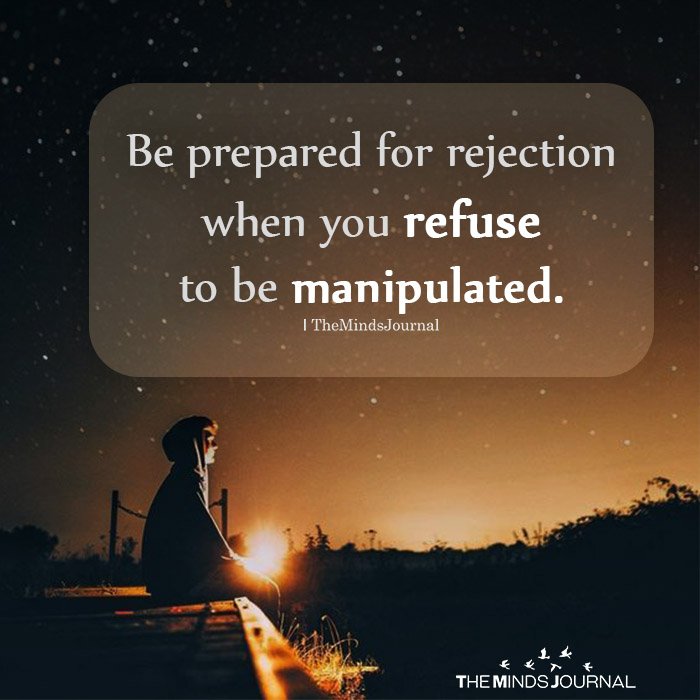
At its core, rejection is painful because it touches on some of our most fundamental fears and insecurities as human beings.
We all have a deep-seated need for belonging and acceptance, and when we’re rejected, it can feel like we’ve been cast out of the tribe. This can trigger feelings of shame, self-doubt, and even depression.
Moreover, rejection can also challenge our sense of identity and self-worth. If we believe that we’re fundamentally unlovable or unworthy, then the rejection can confirm those beliefs and make us feel even worse.
We may begin to question our value as a person, and wonder why anyone would want to be with us or hire us.
Another reason why rejection is so painful is that it often feels personal, even if it’s not. If we’re turned down for a job, for example, we may assume that it’s because we’re not good enough, smart enough, or qualified enough.
We may take the rejection as a sign that we’re not cut out for the career we’ve chosen, or that we’re not as capable as we thought we were. These negative thoughts can spiral out of control, leading us to believe that we’re destined for failure and that we’ll never be able to succeed or be loved.
11 Reasons why rejection hurts
Wondering why is rejection so painful? Here are some of the primary reasons why rejection hurts –
1. Need for acceptance
As social beings, humans have an innate need for acceptance and belonging. From the moment we are born, we seek connection and validation from others. Rejection threatens this primal desire, triggering a range of negative emotions.
When we face rejection, it can feel as though we are being cast out from the social fabric, leaving us vulnerable and isolated.
2. Threat to the ego
Our egos want us to feel good about ourselves. When we experience rejection, it threatens our sense of self-worth and competence. We wonder, “What’s wrong with me?” Rejection chips away at our self-esteem and places doubts in our minds.
3. Impact on self-esteem
Rejection has a profound impact on our self-esteem and self-image. When we are rejected, it can make us question our worthiness, abilities, and qualities.
We may internalize the rejection, believing that we are somehow flawed or inadequate. The blow to our self-esteem can create a vicious cycle, leading to self-doubt and a lack of confidence in future endeavors.
4. Unmet needs
When someone rejects us, we interpret it as them rejecting our needs for love, validation, connection, belonging or support. Having these core human needs go unmet causes intense psychological and emotional discomfort. This is the answer to “why is rejection so painful?”
5. Fear of judgment and criticism
Rejection often brings with it a fear of judgment and criticism. We worry about what others will think of us, how they will perceive our failures, and whether they will see us as less capable or deserving.
This fear intensifies the pain of rejection, as we become hyperaware of potential scrutiny and feel exposed in our vulnerability.
Want to know more about why is rejection so painful? Read on.
6. Loss of control
We have no control over whether or not someone rejects us. This lack of control over our own destiny and circumstances can cause anxiety, anger and distress.
Related: Valuable Lessons From Pain: 10 Ways My Pain Helped Me Grow
7. Challenge our beliefs
Rejection has a way of challenging our deeply held beliefs about ourselves and the world. It can make us question whether we are deserving of love, success, or happiness.
The discrepancy between our expectations and the reality of rejection can shake the foundation of our belief system, causing a profound existential crisis.
8. Fear of isolation
Human beings are hard-wired for connection. Rejection feels like a form of social exile that threatens our basic need to belong.
We worry that if one person rejects us, others will follow. This triggers feelings of vulnerability, loneliness, and loss.
9. Feelings of loss and grief
Rejection can be akin to a loss, as it involves letting go of something we desired or cherished. Whether it’s the loss of a job opportunity, the end of a relationship, or the rejection of a creative project, we experience a sense of grief.
This grief can manifest as sadness, anger, or a feeling of emptiness. The process of mourning the loss further amplifies the pain of rejection.
10. Uncertainty
Rejection leaves us with questions. We’re left wondering: Will it always be this way? Is there something fundamentally wrong with me? Will anyone ever want me? This uncertainty only intensifies the emotional pain. That’s why is rejection so painful.
11. Social comparison and FOMO
In the age of social media, rejection can be particularly painful due to the constant exposure to others’ successes.
The fear of missing out (FOMO) on opportunities, combined with the tendency to compare ourselves to others, exacerbates the pain of rejection. It can make us feel inadequate and intensify feelings of envy or jealousy.
Well, now we know why rejection hurts, but it’s important to remember that it’s also a natural and inevitable part of life. Everyone experiences rejection at some point, and it doesn’t necessarily mean that we’re not good enough or that we’ll never succeed.
Related: 8 Little Reminders For People Struggling With Rejection
In fact, rejection can often be a valuable learning experience, helping us to refine our goals, improve our skills, and become more resilient in the face of adversity.
How to get over rejection
While rejection is undoubtedly painful, it also presents an opportunity for growth and resilience. By reframing our perspective and developing coping strategies, we can navigate rejection more effectively. It’s essential to remind ourselves that rejection is not a reflection of our worth as individuals.
Wondering how to handle rejection in love? Or do you want to know how to deal with job rejection? Dealing with romantic rejection or job rejection can be challenging, but with the right strategies you can eventually overcome it.
Understanding why is rejection so painful is not enough, we must also know how to get over rejection. Here are a few steps on how to deal with fear of rejection –
1. Allow yourself to feel your emotions
It’s natural to feel hurt, disappointed, or even angry after experiencing rejection. Allow yourself to experience these emotions without criticism or judgment.
Acknowledge your emotions and give yourself permission to process them. Give yourself time to mourn the loss. This is how to handle rejection in love.
2. Reframe your thoughts
Rather than viewing rejection as a personal failure, try to reframe it as a learning experience. Ask yourself what can be learned from the experience and how it can help you to grow and improve. This can help you learn how to deal with job rejection.
3. Challenge negative self-talk
When we’re rejected, our minds can often spiral into negative thinking patterns. Challenge negative self-talk and self-doubt by asking yourself if they’re really true, and try to reframe them in a more positive light.
4. Focus on your strengths
Rejection can make us feel like we’re not good enough, but it’s important to remember that we all have strengths and talents. Focus on these positive qualities and remind yourself of all the things you have to offer.
5. Keep trying
Don’t let rejection stop you from pursuing your goals. Keep putting yourself out there and trying new things, even if it means facing the possibility of rejection again.
Remember that rejection is a natural part of the process, and that each rejection brings you one step closer to success. This is how to deal with job rejection.
6. Seek support
It can be helpful to talk to someone you trust about your feelings of rejection. Whether it’s a friend, family member, or therapist, having someone to listen and offer support can make a big difference in how you cope with the experience.
Dealing with romantic rejection is never easy, but seeking support from loved ones is a great place to start.
Related: How To Deal With Rejection In a Healthy Manner
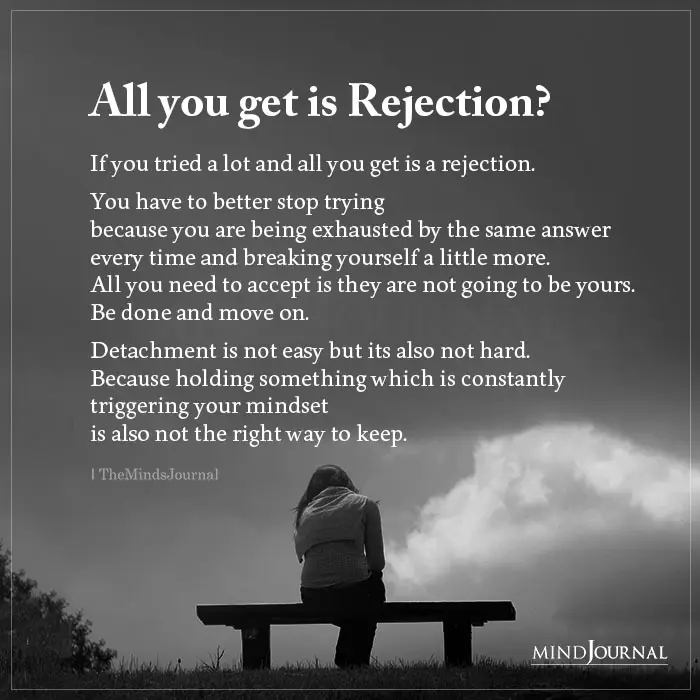
Practices to build resilience
The first step to building resilience is knowing why is rejection so painful. The next steps to knowing how to deal with fear of rejection involve self-love and self-care.
Self-care practices are essential for building resilience and coping with the stress and challenges of daily life. Here are some self-care practices that can help you build resilience for dealing with romantic rejection:
1. Rewrite the situation
Try to see the rejection as the other person’s issue or loss, not yours. Tell yourself they simply weren’t a match for you.
2. Prioritize sleep
Getting a good night’s sleep is essential for mental and physical health. Make sure to prioritize sleep by establishing a consistent sleep schedule, creating a relaxing bedtime routine, and creating a comfortable sleep environment.
3. Exercise regularly
Regular exercise has been shown to reduce stress, improve mood, and boost overall health. Find an exercise routine that works for you, whether it’s going for a walk, taking a yoga class, or lifting weights at the gym.
4. Practice mindfulness
Mindfulness is the practice of being present and fully engaged in the present moment. It can help to reduce stress, improve mood, and increase resilience.
Try incorporating mindfulness practices into your daily routine, such as meditation, deep breathing, or yoga. This is a great way to learn how to deal with fear of rejection.
5. Connect with others
Social support is essential for building resilience. Make time to connect with friends and loved ones, whether it’s through a phone call, video chat, or in-person visit. That’s how to handle rejection in love.
6. Take breaks
Taking breaks throughout the day can help to reduce stress and increase productivity. Try taking short breaks to stretch, take a walk, or engage in a relaxing activity. This is a great strategy when figuring out how to deal with job rejection.
7. Engage in hobbies
Engaging in hobbies or activities that you enjoy can help to reduce stress and improve mood. Whether it’s reading a book, listening to music, or gardening, find activities that bring you joy and make time for them.
8. Practice self-compassion
Self-compassion involves treating yourself with kindness and understanding, rather than self-criticism. Practice self-compassion by speaking to yourself in a kind and supportive manner, and by acknowledging your own strengths and accomplishments.
9. Set boundaries
Setting boundaries can help to reduce stress and increase self-care. Learn to say no to requests that are beyond your capacity, and prioritize your own needs and well-being.
10. Seek help when needed
Lastly, don’t be afraid to seek help when you need it. Whether it’s talking to a friend, reaching out to a mental health professional, or seeking support from a community organization, there are many resources available to help you build resilience and cope with life’s challenges.
Want to learn more about how to deal with fear of rejection? Keep reading.
11. Gain perspective
Remember that one rejection is just one small part of your life. The bigger picture is you’re a worthy person with many good qualities.
12. Build your self-esteem
Work on the things you love about yourself. Spend time with people who value you. Get validation from within, not just from others.
13. Practice gratitude
Cultivate a sense of gratitude by focusing on the positive aspects of your life, such as your relationships, health, or achievements. Gratitude can help to build resilience and increase your overall sense of well-being.
Make a list of things you’re grateful for in life. Focus on the positives instead of the one negative of rejection. This can rebalance your thinking.
14. Adjust your expectations
Not everyone will like you, and that’s okay. Learn to accept rejection as a normal part of life.
Related: Why Men Should Deal With Romantic Rejection Better: 8 Reasons
15. Learn from it
Figure out what you can learn from the rejection to improve for next time. Then, let it go and move on.
Understanding why is rejection so painful is important but it is also important to know how to get over rejection. While dealing with romantic rejection or job rejection can be difficult, it is possible with effort and self-love.
Takeaway
Rejection is a painful experience that can challenge our sense of self-worth and belonging. It can trigger negative thoughts and emotions, but it’s important to remember that it’s a natural and inevitable part of life.
By practicing self-compassion, challenging negative thoughts, focusing on our strengths, and seeking support, we can learn to cope with rejection in a healthy and positive way. Ultimately, rejection can be a valuable learning experience that helps us grow, improve, and become more resilient in the face of life’s challenges.
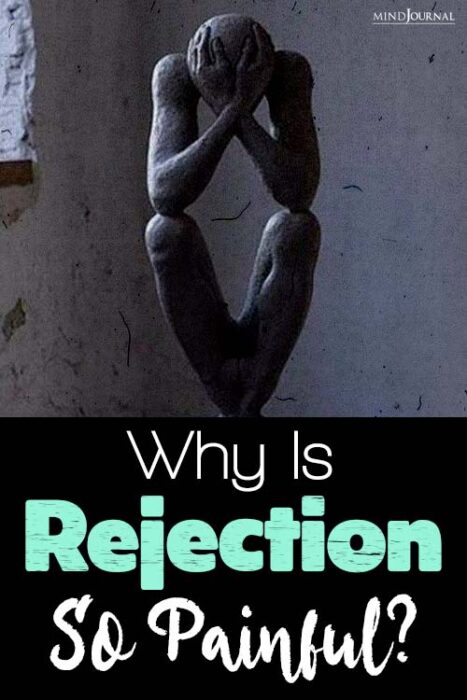
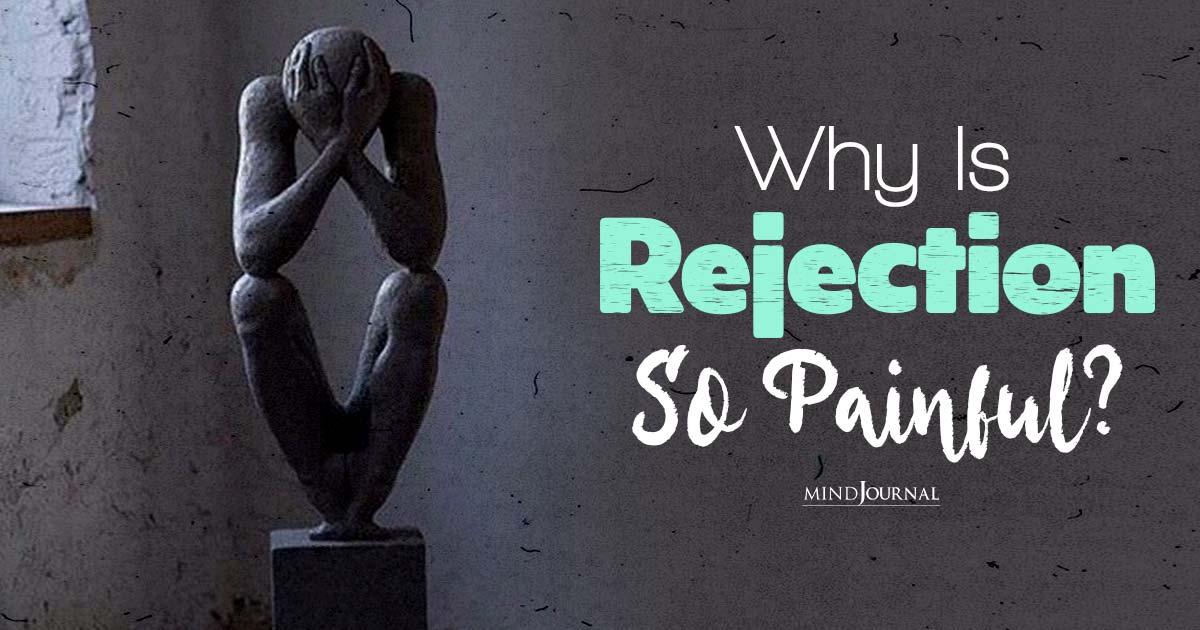




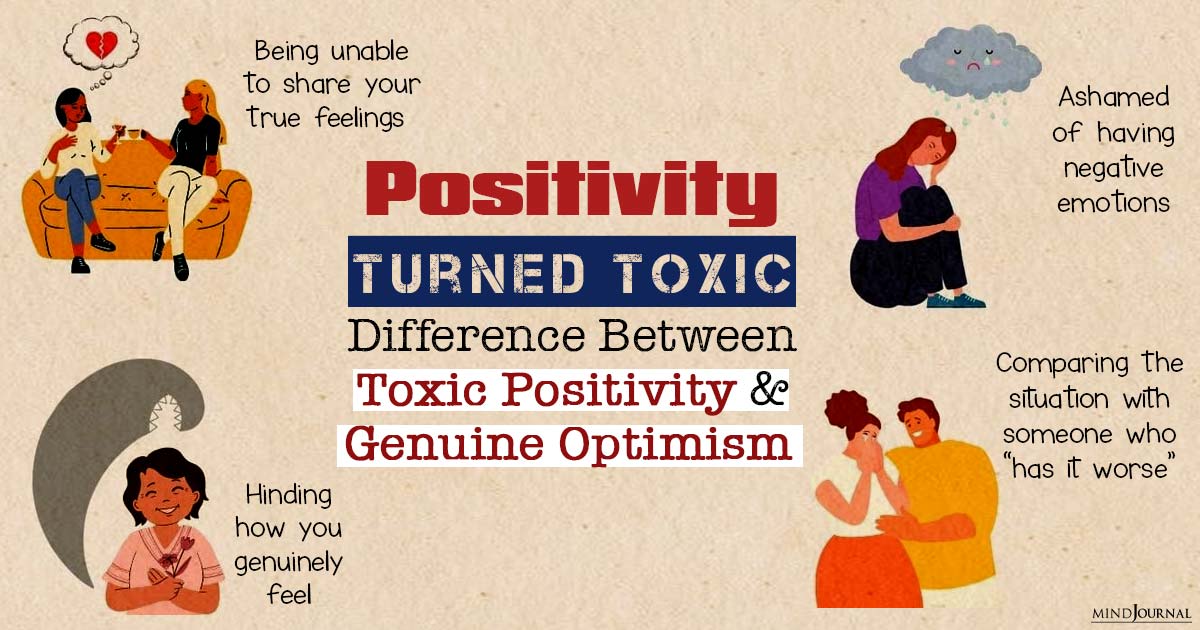

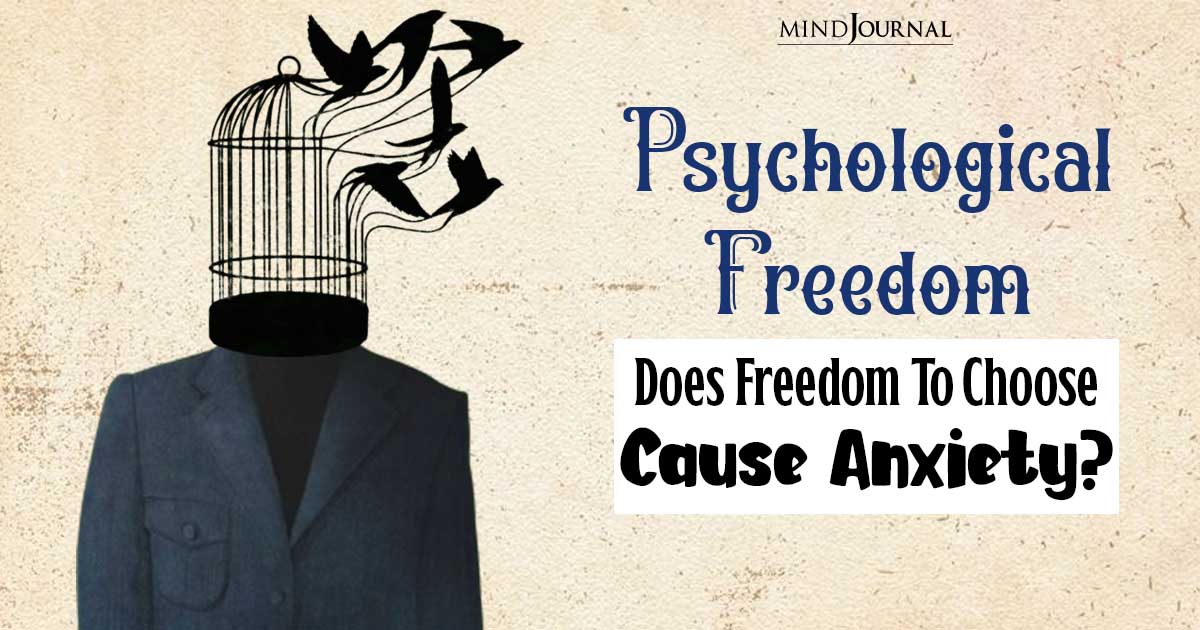
Leave a Reply
You must be logged in to post a comment.